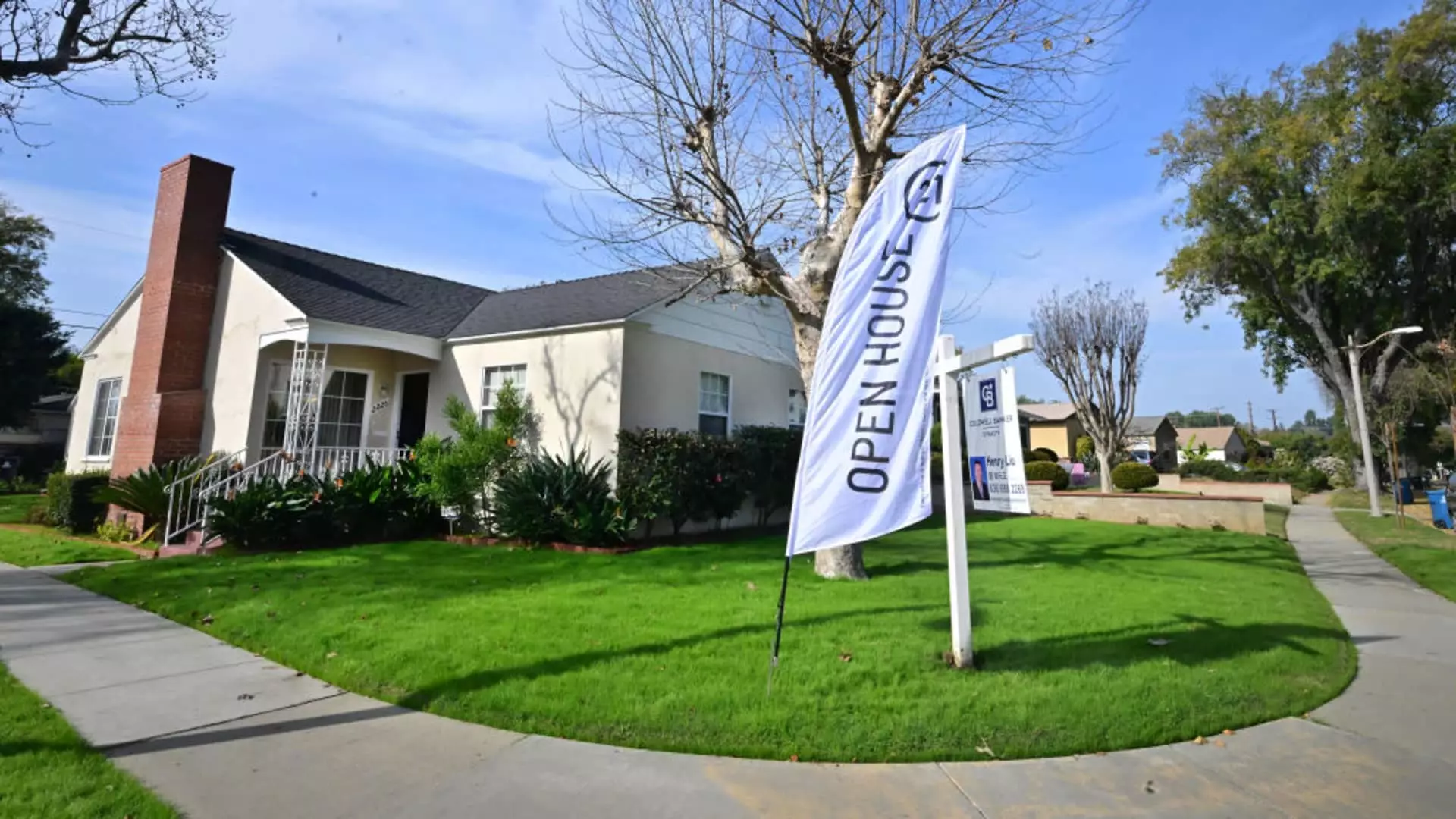The mortgage landscape has experienced notable fluctuations recently, prompting a significant shift in market dynamics. According to the Mortgage Bankers Association (MBA), mortgage rates surged again last week, causing a decline in demand both for refinancing and home purchases. This trend is underscored by a 10.8% decline in total mortgage application volume compared to the previous week, highlighting how sensitive this market is to interest rate changes. The average interest rate for 30-year fixed-rate mortgages rose to 6.81%, following an earlier rate of 6.73%, which contributes to an ongoing trend of reduced activity in both purchase and refinancing segments.
In analyzing the data further, it’s clear that the increase in mortgage rates has had a pronounced effect on refinancing activity. Refinance applications plummeted by 19% for the week, marking the lowest level since May, even as those applications remain 48% higher than during the same week last year. This paradox illustrates the complex relationship borrowers have with interest rates; while current rates are higher than in previous months, they still represent a potential saving in comparison to the significantly higher rates from a year ago.
Interestingly, the average refinance loan size has dipped below $300,000, indicating that households with larger loans are disproportionately impacted by rate increases, leading many to reconsider refinancing options. This pattern can be attributed to the increased volatility in the market, as borrowers assess whether to proceed with refinancing given the costs associated with higher interest rates.
Conversely, mortgage applications for home purchases decreased by 5% during the week but remained slightly above last year’s figures, suggesting that while buyers are still engaging with the market, they are increasingly cautious. The homebuying landscape has seen an uptick in activity over recent months; however, this progress may be stalling due to rising mortgage rates that are pricing some potential buyers out of the market. Concerns over economic stability and the upcoming election are further contributing to a climate of hesitance, with many buyers opting to delay their purchases in light of uncertainty.
Moving into the upcoming week, mortgage rates are anticipated to stabilize, but they remain influenced by broader economic conditions and political developments. The Federal Reserve’s imminent announcement regarding interest rates will likely be a key factor in shaping market expectations. The interplay between economic indicators and mortgage rates will undoubtedly affect consumer confidence and potential market activity.
While mortgage rates have seen a recent surge, the underlying factors indicate a complex balance where potential buyers and refinancers are weighing options amidst a fluctuating economic landscape. The overall sentiment in the housing market seems cautious, as stakeholders await clearer signals from economic reports and policy decisions.

